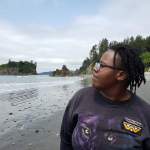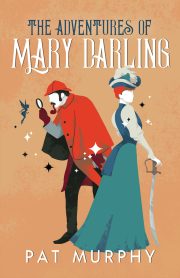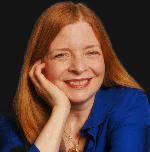What Communities Can Do
by Aigner Loren Wilson
Like many writers, when I first started out writing speculative fiction, I felt lost when it came to who to talk to or where to “hang out” with the other cool kids. I knew there were speculative fiction communities out there, ones that were even open and welcoming to little ol’ queer Black me. But they felt out of reach. Almost forbidden. Like I needed to accomplish something just to be considered. So, I formed my own writing community with my friends who also happened to write speculative fiction. Though well-meaning, these other writers weren’t really the community I needed.
You see, they weren’t like me. Though they wrote speculative fiction, their stories were based in predominantly white societies and ideals. My experiences, opinions, and stories were therefore valued or seen as less because I wasn’t working or thinking the way they were. My stories and characters were unrealistic. The sadness and joys I wrote weren’t relatable. I know from being involved in different writing communities and talking with other writers of color that my experience is, or was, the norm. This has led to more writers giving up the pen or board or mic or what have you because they are told so much that their voices and stories are wrong.
Writing may be a solitary act, but reading, publishing, and loving a genre are not solitary. They only happen with the help of those around you, through community. In the beginning before I ever sold a piece, professional or otherwise, the writing communities that helped and encouraged me were all found online, which now, in the age of Covid, is ideal.
Binders Full of Speculative Fiction Writers, a free private Facebook group for women, genderqueer, and non-binary identifying writers is one that I belong to and recommend for writers who identify as the above, looking to meet new writers and connect. It’s a supportive community of writers who are really just there to show their love for working in the genre. Being a part of the Binders group has helped me find new magazines to read and submit to while also opening me up to the diversity of the genre. The group helped me see that there was a place for me and my stories, and that there were readers out there hungry for them.
That’s what good communities do. They uplift and encourage their members, offering advice, resources, and a place to go when it feels like all other places are barred.
Another few science fiction and fantasy Facebook groups that are free and worth checking out are the Asian Science Fiction and Fantasy group, Speculative Literature Foundation, The Sci-Fi & Fantasy Writers’ Guild, and Writing the Other. Not only are these great groups for asking questions, meeting new writers, and learning about the craft, a lot of times “big names” in the field are active members or admins in the group. If you’ve never seen your favorite writers share hilarious and candid posts about their life and craft, it honestly does wonders for imposter syndrome and realizing that your heroes are just other writers that happen to be well-known for their love and commitment to the genre.
For the longest time, I had a bad impression of Reddit. It seemed like literal flaming vessels in an ocean that already felt wide and unwelcoming. So, it took me years to get over those feelings and see that there are a whole hell of a lot of people who just want to connect and learn and showcase their stories. R/Fantasy and R/Science Fiction are both huge communities of writers, readers, and fans who are passionate and knowledgeable about the genre. They even host AMAs from working professionals in the field.
Two paid online communities that are worth checking out are the Science Fiction and Fantasy Writers of America and the Online Writing Workshop for science fiction, fantasy, and horror writers. Once a member of SFWA, you get access to the confidential and closed community boards where members can interact with agents, publishers, and other writers. Members of OWW can give and receive feedback while networking and building their community online. There’s also the Black Science Fiction Society and Codex writers group, which are both free online groups. Codex, however, is a neo-pro market, so there are some requirements to join. It is very similar to the SFWA community, and often, I find myself lost in threads learning about my favorite publishers or writers and along the way learning something about craft and myself.
Without community, I felt lost in the writing world. Finding some online led me to discovering that there’s no right way to publish, to be a science fiction or fantasy author; there is only the shared commitment and love of the genre.
 Aigner Loren Wilson is a SFWA, HWA, and Codex writer who writes poetry, nonfiction, games, and fiction. She is an associate editor and copy editor for Strange Horizons and the horror podcast NIGHTLIGHT; a writer for Tor Nightfire, Discover Pods, and other publications. She is a 2019 Otherwise Fellowship honorable mention, and her work has appeared in Arsenika, Terraform, Tor.com, and more. For news of her upcoming releases and more, join her reader group.
Aigner Loren Wilson is a SFWA, HWA, and Codex writer who writes poetry, nonfiction, games, and fiction. She is an associate editor and copy editor for Strange Horizons and the horror podcast NIGHTLIGHT; a writer for Tor Nightfire, Discover Pods, and other publications. She is a 2019 Otherwise Fellowship honorable mention, and her work has appeared in Arsenika, Terraform, Tor.com, and more. For news of her upcoming releases and more, join her reader group.


